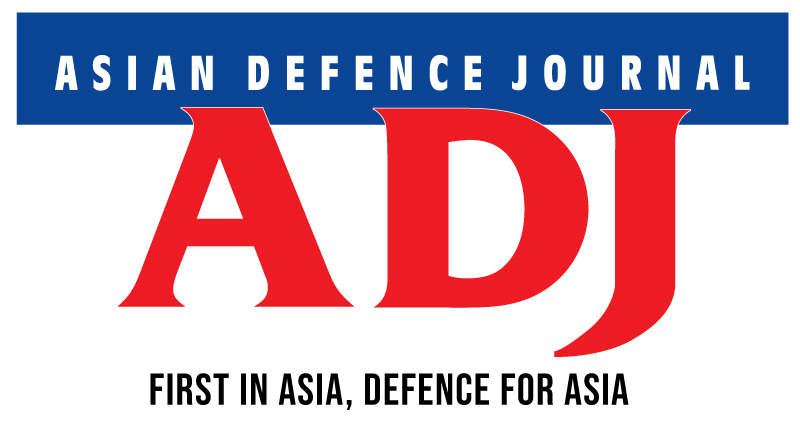THAILAND–The Land of Partnership and Business Opportunity
The biennial Defense & Security exhibition is now globally recognised as one of the most important tri-service and security exhibitions of the year. The show serves as an important platform for military cooperation and partnership and offers top business opportunities for military and security manufacturers. This power of partnership provides outstanding benefits for now and the future.
This makes Thailand’s largest defence event a key international trade show in the Southeast Asian region and is expected to be more all-encompassing covering the gamut of the latest in defence technology. The exhibition will be held at the IMPACT Exhibition centre on Nov 18-21. The 2019 Bangkok show will continue to impress the importance of partnership in the industry, with its theme, “The Power of Partnership”. The show is a platform to support further regional cooperation and business partnerships for a more united response covering all areas of defence and security. GML Exhibition (Thailand), the show’s organisers, will be putting through all the events together this year, as the show is expected to get bigger, further fuelled by the rapid modernisation initiatives undertaken by the Thai government.
With full support from the Thai Ministry of Defence and Royal Thai Armed Forces, this major regional military and security event is expected to welcome more than 15,000 visitors including over 300 top foreign official delegations–especially from ASEAN. Local delegations and decision-makers are also expected to attend along with the chiefs of Royal Thai Armed Forces, chiefs of police, as well as high-ranking police personnel from the Thai military, police, customs, coast guard, the Ministry of Interior, and other government and private security agencies.
Military Modernisation Plans to Continue
The Thai Ministry of Defence’s budget for 2019 is THB227 billion with 14.5%, or THB 33.1 billion, tied budget and military procurement and 14.7% or THB33.5 billion for other projects. According to the Stockholm International Peace Research Institute (SIPRI)’s Thai Military Expenditure is one of the highest in ASEAN with expenditure in 2017 hitting $6.335 billion.
The Thai Ministry of Defence introduced nine military reforms and restructuring plan for 2017-2026. The plan emphasises research and development along with focus on purchases of munitions, weapons, high technology electronic devices, and telecommunication systems. To further increase military capabilities, the Thai military will invest and develop additional defence technology and defence intelligent systems. For example, the common operation picture (COP), the network-centric operation (NCO), and the message text format (MTF) will focus on the procurement of helicopters, armoured vehicles, unmanned aerial vehicles (UAVs), surveillance equipment, and frigates that will counter southern insurgency and strengthen current military units.
Opportunity for Defence Sector
The kingdom of Thailand is definitely the land for opportunity for enterprises to set their footprint here. Recently in January, it was announced that the development plan for defence, one of the 12 targeted S-curve industries for which the government is beefing up investment promotion, is set to go before the cabinet for vetting and approval. The defence industry development aims not just for usage by the military, but for commercial use as well.
The measure is taken because the government wants to upgrade the efficiency and technology of the army, air force and navy. The aim is to produce more of the country’s security equipment at home and reduce the annual budget for importing new weapons and technology.
Deputy secretary-general for political affairs to the prime minister. Gen Navin Damrikan was quoted as saying by the Bangkok Post that the initial stage of defence industry development should focus on manufacture of tired armoured cars, jammers and firing pins for pistols and rifles, while the long-term plan calls for development of offshore patrol vessels (OPVs), drones and energy storage.
He added that the government will promote the cluster for vessel development in Sattahip district, Chon Buri and is hopeful that once the cluster is fully developed, Thailand will become one of the world leaders in OPV and commercial ship manufacturing over the next 20 years. For drones, development will focus on control systems and anti-drone technology; connectivity between drones and artificial intelligence; unmanned aerial vehicles; and other drone-related solutions.
Digitalised Armed Forces
As the Royal Thai Army seeks to digitalise its capabilities for network-centric operations, Thai Defence Technology Institute (DTI) have signed a memorandum of agreement (MoA) with a key industrial partner to further enhance collaboration in the communications domain for military vehicles application.
The MoA follows a memorandum of understanding (MoU) signed in September 2017 which paved the way for DTI to research and develop innovations related to air defence and digital communications systems. With this new agreement, the first common project for all parties will be dedicated to the upgrade of the Royal Thai Army’s existing fleet of armoured personal carrier (APC).
The MoA focuses on upgrading the APCs with a C5I (computerised, command, control, communications and combat information) operational solution, integrating both VHF and HF combat net radios, a battle management system (BMS) for tactical command and control, and vehicle electronics integration. To develop expertise in Thailand, the partner will progressively transfer technology and knowledge to DTI, enabling, at the end, the capability for Thailand to design, integrate and validate C5I systems on any local platform.
Coupled with training courses focused on programming, robust digital vehicle architecture, manufacturing, maintenance and services, the partner supports the long-term ambitions of the Thai government to grow its capabilities in the high-end digital domain. This agreement further underscores DTI commitment to supporting Thailand 4.0, with one of its objectives being the development of Thailand’s capabilities in the defence industry, through knowledge and technology transfer.

